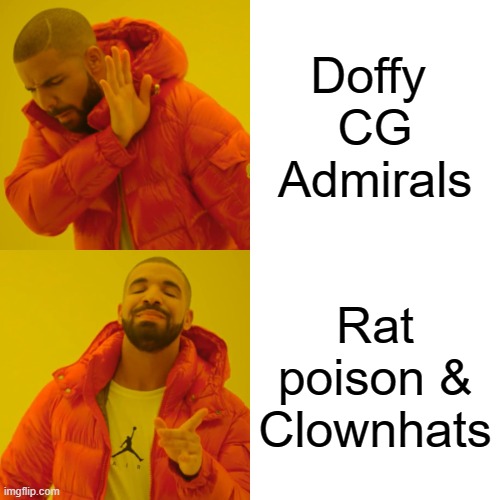Spoiler One Piece Chapter 1126 Spoilers Discussion
- Thread starter Absalom
- Start date
- Tags barto >>> kidd barto put up a better fight than kid nami strongest black blade user oh no janitor bros wami black blade yasopp hype
- Status
- Not open for further replies.
More options
Who Replied?Nami getting married sanji is the main one that wants to save her. Lola a daughter of big mom being involved
Sanji getting married nami is the main one that wants to go help save him (in zou). The big mom pirates in general being involved

Loki might want to marry nami…
The big mom pirates might get involved in elbaf

Idk about this one it’s an uncanon movie

Sanji getting married nami is the main one that wants to go help save him (in zou). The big mom pirates in general being involved

Loki might want to marry nami…
The big mom pirates might get involved in elbaf

Idk about this one it’s an uncanon movie

Rat toxicity:
Rodenticide toxicity is a significant public health concern due to the diverse mechanisms of action and the variety of available rodenticides. Most commonly, human exposure to rodenticides is accidental, often occurring in young children. The clinical presentation of rodenticide toxicity varies widely. Common symptoms range from anticoagulant-induced bleeding to neurological and metabolic disturbances. Prompt identification of the ingested rodenticide is critical for effective treatment and involves obtaining a detailed history, performing a thorough physical examination, and searching for packaging or other indicators of the specific rodenticide(s) involved. Management of rodenticide toxicity focuses on stabilizing the patient and providing specific antidotes or supportive care. Consultation with poison control centers or toxicologists is essential for guidance on appropriate treatment of rodenticide toxicity
Rodenticide toxicity is a significant public health concern due to the diverse mechanisms of action and the variety of available rodenticides. Most commonly, human exposure to rodenticides is accidental, often occurring in young children. The clinical presentation of rodenticide toxicity varies widely. Common symptoms range from anticoagulant-induced bleeding to neurological and metabolic disturbances. Prompt identification of the ingested rodenticide is critical for effective treatment and involves obtaining a detailed history, performing a thorough physical examination, and searching for packaging or other indicators of the specific rodenticide(s) involved. Management of rodenticide toxicity focuses on stabilizing the patient and providing specific antidotes or supportive care. Consultation with poison control centers or toxicologists is essential for guidance on appropriate treatment of rodenticide toxicity
So does shanks really poisoned Roger? If then he is biggest rat on the series. Roger then tell shanks to look for joyboy. Shanks did it then rat him out later on when the times come. . Yes shanks is going against Roger wishes and will
actively against Luffy. He is biggest rat and biggest hypocrite out there. It funny how he tell greenbull to to not pick on kids and rookies but did himself with Kidd and Bartolomeo anyway. Rats
actively against Luffy. He is biggest rat and biggest hypocrite out there. It funny how he tell greenbull to to not pick on kids and rookies but did himself with Kidd and Bartolomeo anyway. Rats
@AverageNamiEnjoyer there is very very high chance man marked by flames is Figarland of some kind

Shiriyu thinks the person is related to the world government. This is before we found out what the holy knights were


Oda introduced a mysterious character who holds the Sword like Shanks in one of the most important spreads in the series.
I am wondering if he is the new Leader of the Holy Knights if Garling has now taken Saturns spot

Shiriyu thinks the person is related to the world government. This is before we found out what the holy knights were


Oda introduced a mysterious character who holds the Sword like Shanks in one of the most important spreads in the series.
I am wondering if he is the new Leader of the Holy Knights if Garling has now taken Saturns spot
- Status
- Not open for further replies.







